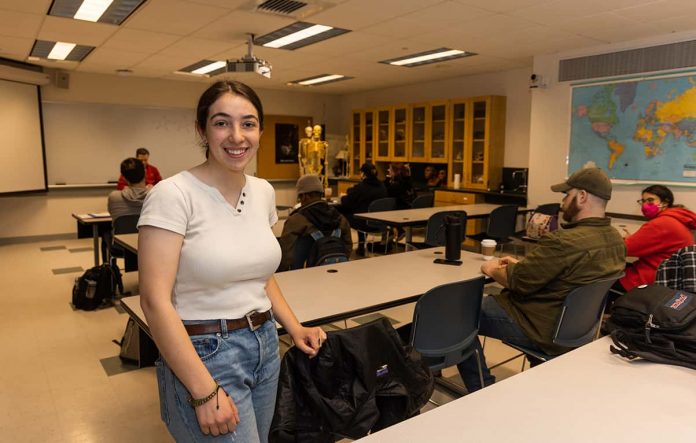Southern Connecticut State University stands at the forefront of Connecticut’s efforts to enhance high school education through the expansion of dual credit programs. Last month, Governor Ned Lamont and Education Commissioner Charlene M. Russell-Tucker announced the allocation of $3.8 million by the Connecticut State Department of Education to 83 applicants from 89 school districts across the state. The focus of this initiative is to strengthen partnerships between high schools and public and private colleges and universities, with Southern taking the lead.
Norwalk High School, in collaboration with Southern, is a shining example of the transformative impact of dual credit programs. Amanda Bomann, a social studies teacher at Norwalk High School and a member of the Southern Connecticut State University Early College Advisory Council, expressed her enthusiasm, stating, “Norwalk High is thrilled to hear Governor Lamont is investing $4 million into expanding college-level courses in high school. Norwalk High School’s partnership with Southern Connecticut State University has been critical to expanding access to college for our students. Norwalk High students are graduating with college credits that combat inequity in access due to the increasing costs of a college education.”
Bomann continued, “Without the ability to reduce the cost of college by earning credits in high school and gaining the skills and motivation to continue in higher education, many of our students would not be able to afford and access a college degree.”
The Dual Credit Expansion Grant Program, spearheaded by Southern, is designed to empower high school students across Connecticut to earn college credits before graduating, thus enriching their educational journey and reducing the financial burden of higher education costs.
“Southern is pleased to provide high school partnerships to enable students from across the state to earn college credits and explore areas of academic interest before they make a final decision about where to attend,” said Trudy Milburn, associate vice president of academic affairs.
Dual credit courses offered through this initiative encompass traditional academic college pathways and career-oriented options that lead to industry-recognized credentials. The innovative programs created by the 83 grant recipients emphasize student-centered approaches, equity, and alignment with industry needs.
“Dual enrollment is about exposing our students to different opportunities,” explained Dina Natalino, supervisor of college and career pathways for New Haven Public Schools.
Southern, in collaboration with its educational partners, envisions a future where a higher percentage of 11th and 12th graders earn three or more college credits before high school graduation, significantly reducing disparities among student groups. Recent data reveals that this percentage has already increased from 22.3% in 2021-2022 to 24.1% in 2022-2023, an increase of approximately 1,400 students statewide in just one year.
“The research shows that if high school students earn 12 credits by 12th grade, they will persist through graduation. Since most of our students are first-generation students, this is really important,” said Natalino.
She added, “If our students take advantage of all the collegiate opportunities we offer, they will have completed most of their prerequisites before they get to college.”
The federal COVID relief grant funds allocated to the Dual Credit Expansion Grant Program, with SCSU taking the lead, will be used to support various initiatives, including:
- Providing stipends for high school teachers and higher education faculty to align course curricula with college expectations
- Offering tuition reimbursement for high school teachers to qualify as concurrent enrollment instructors
- Acquiring specialized equipment for fields such as healthcare, manufacturing, and technology
- Implementing strategies to engage students and their families in the course selection process by highlighting the benefits of earning college credit in high school
“We’re really excited for what the future holds with this partnership and look forward to partnering further,” Natalino said.
Furthermore, these funds will not only bolster high schools but also support higher education partners by enhancing program quality standards, pursuing accreditation through the National Alliance for Concurrent Enrollment Partnerships (NACEP), and expanding institutional capacity to meet the growing demand for dual credit courses.
Southern remains committed to leading the way in educational innovation and equipping Connecticut’s students with the tools they need to succeed in both college and career.


